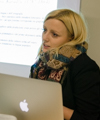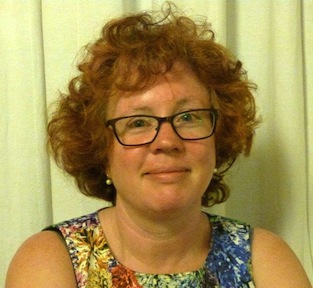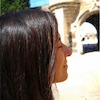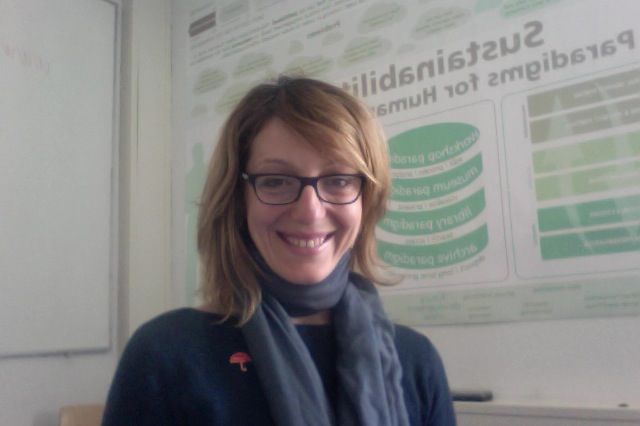Studying at the University of Verona
Here you can find information on the organisational aspects of the Programme, lecture timetables, learning activities and useful contact details for your time at the University, from enrolment to graduation.
Academic calendar
The academic calendar shows the deadlines and scheduled events that are relevant to students, teaching and technical-administrative staff of the University. Public holidays and University closures are also indicated. The academic year normally begins on 1 October each year and ends on 30 September of the following year.
Course calendar
The Academic Calendar sets out the degree programme lecture and exam timetables, as well as the relevant university closure dates..
| Period | From | To |
|---|---|---|
| I semestre | Oct 1, 2015 | Jan 9, 2016 |
| II semestre | Feb 22, 2016 | May 31, 2016 |
| Session | From | To |
|---|---|---|
| Appelli d'esame LINGUE - sessione invernale | Jan 11, 2016 | Feb 20, 2016 |
| Appelli d'esame LINGUE - sessione estiva | Jun 3, 2016 | Jul 29, 2016 |
| Appelli d'esame LINGUE - sessione autunnale | Aug 29, 2016 | Sep 29, 2016 |
| Session | From | To |
|---|---|---|
| TESI DI LAUREA - LINGUE | Nov 18, 2015 | Nov 20, 2015 |
| TESI DI LAUREA - LINGUE | Mar 30, 2016 | Apr 1, 2016 |
| TESI DI LAUREA - LINGUE E LL.SS | Jul 6, 2016 | Jul 8, 2016 |
| TESI DI LAUREA - LINGUE E LL.SS | Nov 23, 2016 | Nov 25, 2016 |
| Period | From | To |
|---|---|---|
| FESTA DELL'IMMACOLATA | Dec 8, 2015 | Dec 8, 2015 |
| VACANZE DI NATALE | Dec 23, 2015 | Jan 6, 2016 |
| Vancanze di Pasqua | Mar 24, 2016 | Mar 29, 2016 |
| FESTA DELLA LIBERAZIONE | Apr 25, 2016 | Apr 25, 2016 |
| FESTA DEI LAVORATORI | May 1, 2016 | May 1, 2016 |
| FESTA DEL SANTO PATRONO SAN ZENO | May 21, 2016 | May 21, 2016 |
| FESTA DELLA REPUBBLICA | Jun 2, 2016 | Jun 2, 2016 |
| Vacanze estive | Aug 8, 2016 | Aug 15, 2016 |
Exam calendar
Exam dates and rounds are managed by the relevant Foreign Languages and Literatures Teaching and Student Services Unit.
To view all the exam sessions available, please use the Exam dashboard on ESSE3.
If you forgot your login details or have problems logging in, please contact the relevant IT HelpDesk, or check the login details recovery web page.
Academic staff
 birgit.alber@univr.it
birgit.alber@univr.it
 alessandro.bigardi@univr.it
alessandro.bigardi@univr.it

Bradas Marija
 marija.bradas@univr.it
marija.bradas@univr.it
 paolamaria.caleffi@univr.it
paolamaria.caleffi@univr.it
 veronica.gobbato@univr.it
veronica.gobbato@univr.it
 tiziana.mancinelli@univr.it
tiziana.mancinelli@univr.it
 sara.paolini@univr.it
sara.paolini@univr.it
 fabioantonio.scrignoli@univr.it
fabioantonio.scrignoli@univr.it
Study Plan
The Study Plan includes all modules, teaching and learning activities that each student will need to undertake during their time at the University.
Please select your Study Plan based on your enrollment year.
1° Year
| Modules | Credits | TAF | SSD |
|---|
2° Year activated in the A.Y. 2016/2017
| Modules | Credits | TAF | SSD |
|---|
3° Year activated in the A.Y. 2017/2018
| Modules | Credits | TAF | SSD |
|---|
| Modules | Credits | TAF | SSD |
|---|
| Modules | Credits | TAF | SSD |
|---|
| Modules | Credits | TAF | SSD |
|---|
| Modules | Credits | TAF | SSD |
|---|
Legend | Type of training activity (TTA)
TAF (Type of Educational Activity) All courses and activities are classified into different types of educational activities, indicated by a letter.
Spanish language 3 (2017/2018)
Teaching code
4S002923
Academic staff
Coordinator
Credits
9
Also offered in courses:
- Spanish language 3 of the course Bachelor's degree in Foreign Languages and Literatures
Language
Spanish
Scientific Disciplinary Sector (SSD)
L-LIN/07 - LANGUAGE AND TRANSLATION - SPANISH
Period
Semester 2 dal Feb 26, 2018 al Jun 9, 2018.
Learning outcomes
The aim of the course is to introduce students to the analysis of word formation and to approach several examples of lexical creativity in Spanish.
--------------------------------
– Familiarizarse con conceptos fundamentales de la lexicología y la morfología, como neologismo, préstamo, composición, derivación, etc.
– Entender los mecanismos básicos de la formación de palabras en la lengua española
– Acercarse a algunos ejemplos de creatividad léxica, acuñación neológica y evolución léxico-semántica en diferentes ámbitos.
Program
Creativity in the lexicon and in the speech in Spanish
Bibliography
— M. Casado Velarde, La innovación léxica en el español actual, Madrid, Síntesis, 2015.
Please be advised:
— Further details on required readings and general information on bibliographical material will be provided during classes.
— Teaching aids are required readings. They will be provided by the professors on the “Moodle” webpage.
The course will be held in Spanish.
--------------------------------
Creatividad en el léxico y en el discurso en español
El curso pretende ofrecer una aproximación a la morfología léxica del español y a los demás recursos que el lenguaje tiene a su disposición para acuñar nuevas palabras. Además, se propone presentar dichos mecanismos léxico-semánticos en algunos ámbitos concretos y bajo una perspectiva que abarque tanto el nivel morfémico como el sintagmático y el textual.
Primera parte
1. Introducción a la morfología léxica: conceptos fundamentales
2. La neología en español
3. La creatividad léxica en el español coloquial
Segunda parte
3. La creatividad léxica en la fraseología
4. La creatividad léxica en el discurso
Bibliografía de lectura obligada
– M. Casado Velarde, La innovación léxica en el español actual, Madrid, Síntesis, 2015.
Durante el desarrollo del curso se darán ulteriores indicaciones bibliográficas sobre todos los aspectos tratados.
También forman parte del temario del examen los textos y materiales utilizados a lo largo del curso, que se colgarán en la plataforma Moodle de la asignatura.
Los estudiantes que no asisten a clase pueden consultar los textos de referencia indicados en la plataforma Moodle.
Los estudiantes Erasmus deberán ponerse en contacto con el profesor.
| Author | Title | Publishing house | Year | ISBN | Notes |
|---|---|---|---|---|---|
| Casado Velarde, Manuel | La innovación léxica en el español actual (Edizione 2) | Síntesis | 2017 | 978-84-9077-151-8 |
Examination Methods
The exam consists of a test on theoretical and practical questions related to the course program, the bibliography and the didactic materials provided in e-learning mode. Both the formulation of the questions and the answers will be made in writing and in Spanish. The test consists of open-ended questions, multiple-choice questions and exercises. Some require metalinguistic reflection, the ability to detect phenomena handled throughout the course and to provide examples of them. The grade will be determined by calculating the average between the score obtained in the linguistic competence (C1) and that obtained in the test of the subject. The results will be communicated through a notice published on the corresponding website ("Avvisi"). For students who do not attend class, the program and the form of evaluation are the same.
LINGUISTIC COMPETENCE REQUIRED:
Level 4 (ALTE), C1 (Council of Europe).
Assessment of linguistic competence will be on the grounds of certificates issued by the CLA (the University Linguistic Centre) or by other accredited institutions (see “Students’ Manual”, p. 25).
PREREQUISITES: Students taking this exam must have already passed the exams of Spanish Language and Literature of the 2nd year.
Erasmus students should contact the teacher.
--------------------------------
El examen consiste en una prueba escrita sobre cuestiones teóricas y prácticas relativas al programa del curso, la bibliografía de lectura obligada y los materiales didácticos proporcionados en modalidad e-learning. Tanto la formulación de las preguntas como la de las respuestas serán efectuadas por escrito y en lengua española. La prueba se compone de preguntas abiertas, preguntas con opción múltiple y ejercicios. Algunas preguntas requieren reflexión metalingüística, capacidad de detectar fenómenos tratados a lo largo del curso y de proporcionar ejemplos de los mismos.
Para los alumnos que no asisten a clase, el programa y la forma de evaluación son los mismos.
COMPETENCIA LINGÜÍSTICA: Nivel 4 (ALTE), C1 (Marco de Referencia Europeo para las Lenguas): Centro Linguistico di Ateneo o Instituto Cervantes (Nivel Superior). La competencia lingüística es propedéutica.
OTROS REQUISITOS: Superación de las asignaturas obligatorias y previas de Lengua española 2 y Literatura española 2.
La nota se determinará calculando la media entre la puntuación obtenida en la competencia lingüística (C1) y la obtenida en la prueba de la asignatura.
Los resultados se comunicarán a través de un aviso publicado en la página web correspondiente (“Avvisi”).
Type D and Type F activities
To discover all the teaching activities accredited by the foreign teaching college click here
Career prospects
Module/Programme news
News for students
There you will find information, resources and services useful during your time at the University (Student’s exam record, your study plan on ESSE3, Distance Learning courses, university email account, office forms, administrative procedures, etc.). You can log into MyUnivr with your GIA login details: only in this way will you be able to receive notification of all the notices from your teachers and your secretariat via email and soon also via the Univr app.
Student login and resources
Assegnazione tutore
Attività accreditate D/F
Calendario didattico dettagliato
Cambio lingua curriculare
Competenze informatiche
Competenze linguistiche (prima e seconda lingua)
Competenze linguistiche in triennale (terza lingua CFU F)
Compilazione del piano didattico
Corso di Lingua portoghese
Erasmus+ e altre esperienze all'estero
Linguistic training CLA
Graduation
List of theses and work experience proposals
| Stage | Research area |
|---|---|
| PROGETTO MAMBRINO Stage per bibliografia | Various topics |
Stage e tirocini
Nel piano didattico della laurea triennale in Lingue e culture per l’editoria (L11 ED) è previsto un tirocinio/stage obbligatorio (CFU 6).
Le attività di stage sono finalizzate a far acquisire allo studente una conoscenza diretta in settori di particolare interesse per l’inserimento nel mondo del lavoro e per l’acquisizione di abilità professionali specifiche.
Le attività di stage sono svolte sotto la diretta responsabilità di un singolo docente presso studi professionali, enti della pubblica amministrazione, aziende accreditate dall’Ateneo veronese.
I crediti maturati in seguito ad attività di stage saranno attribuiti secondo quanto disposto nel dettaglio dal “Regolamento d’Ateneo per il riconoscimento dei crediti maturati negli stage universitari” vigente.
- Tutte le informazioni in merito agli stage per futuri studenti sono disponibili alla pagina Stage e tirocini.
- Tutte le informazioni in merito agli stage per studenti iscritti sono pubblicate in MyUnivr - come fare per - stage e tirocini.
- Tutte le informazioni in merito agli stage per le aziende sono disponili alla pagina Stage e tirocini per azienze.
Ulteriori informazioni al seguente link https://www.univr.it/it/i-nostri-servizi/gestione-carriere-studenti-lingue-e-letterature-straniere/stage-e-tirocini-lingue-e-letterature-straniere


 +39 045802 8465
+39 045802 8465





























